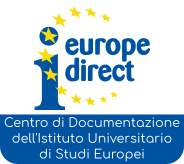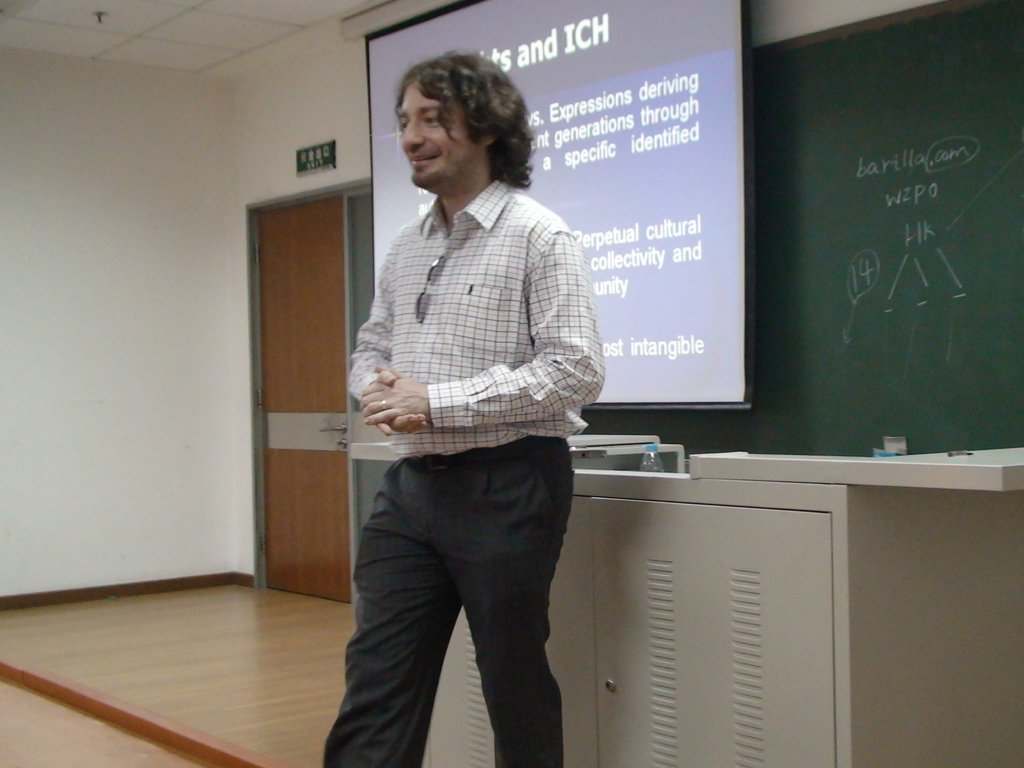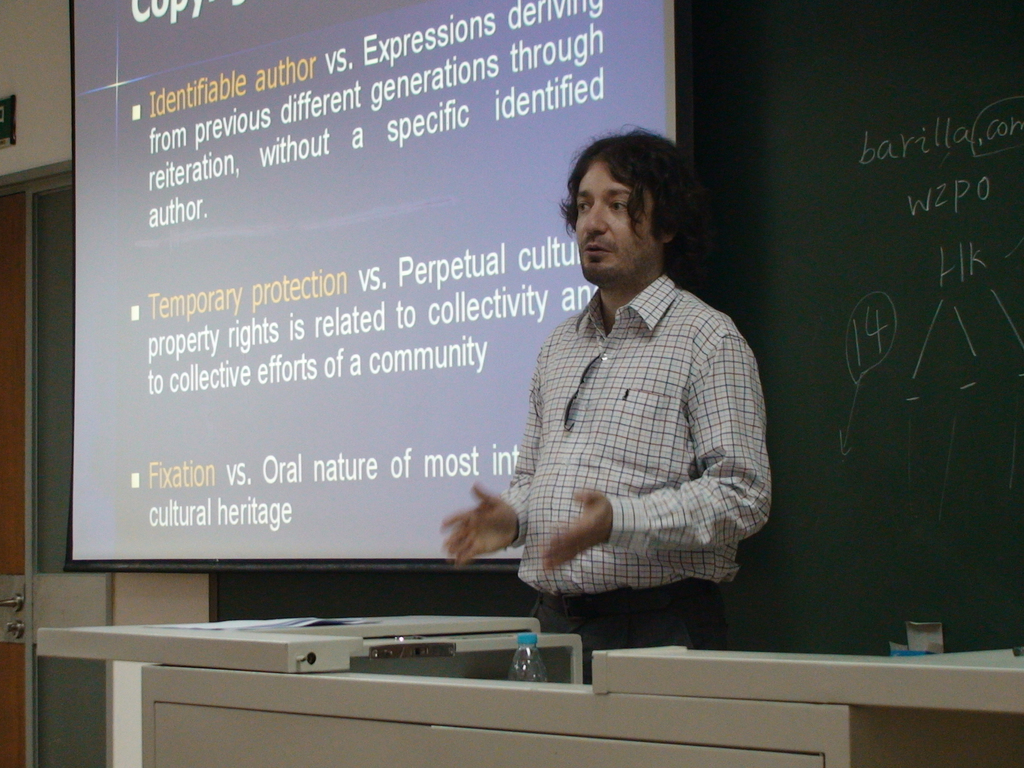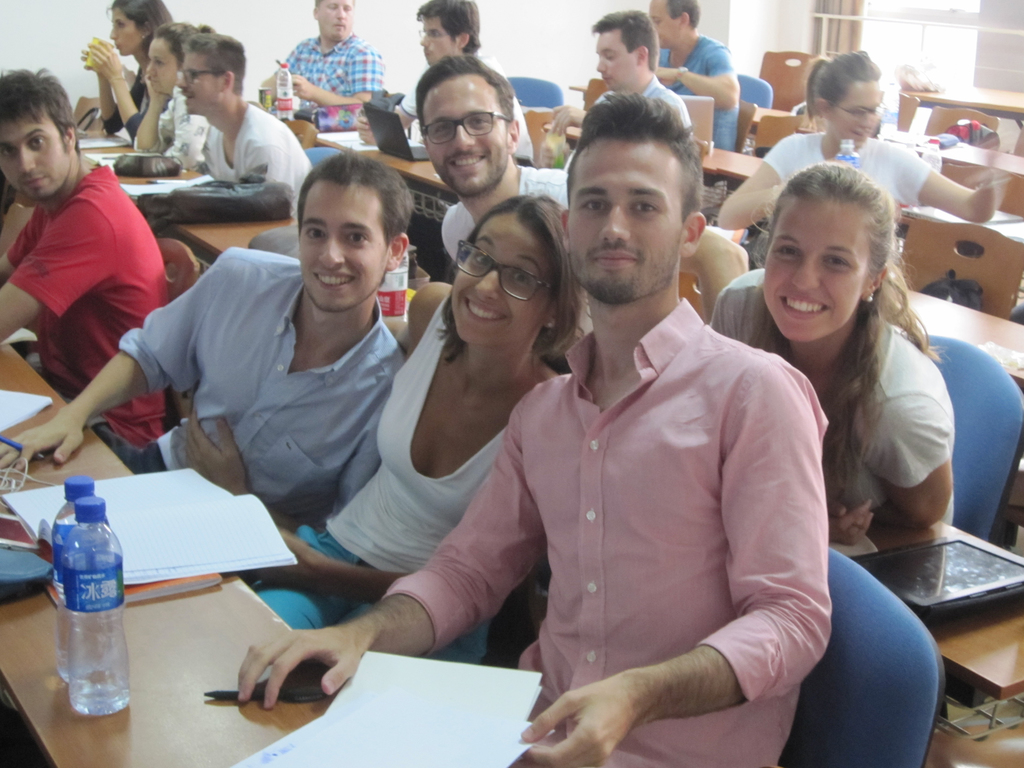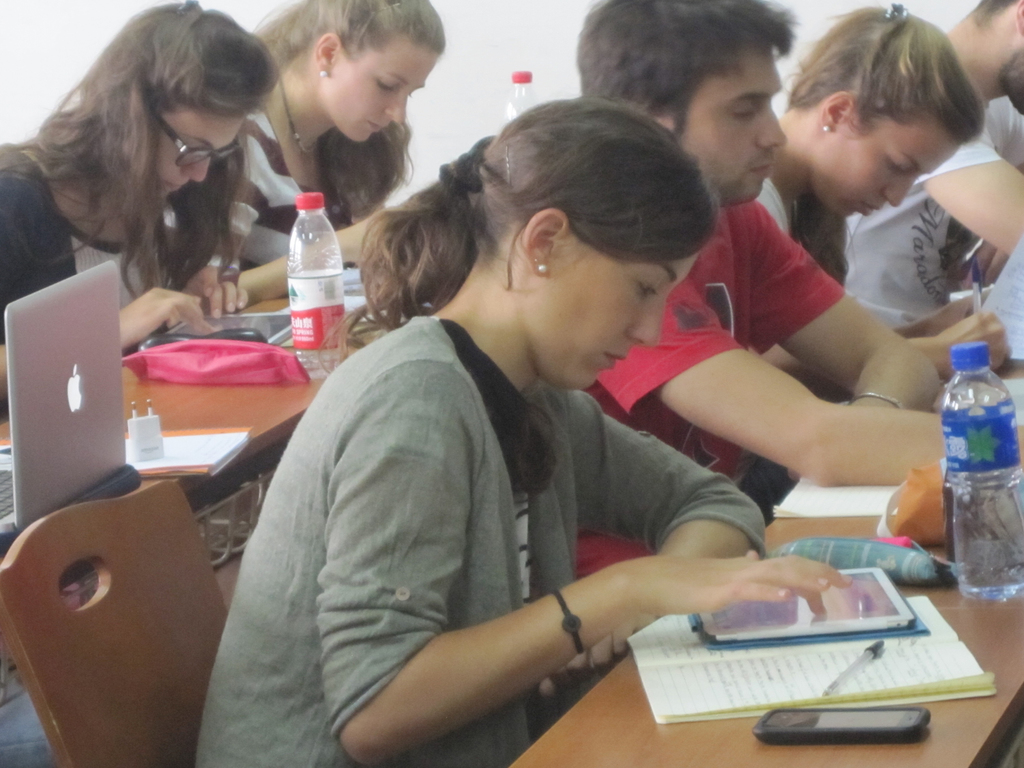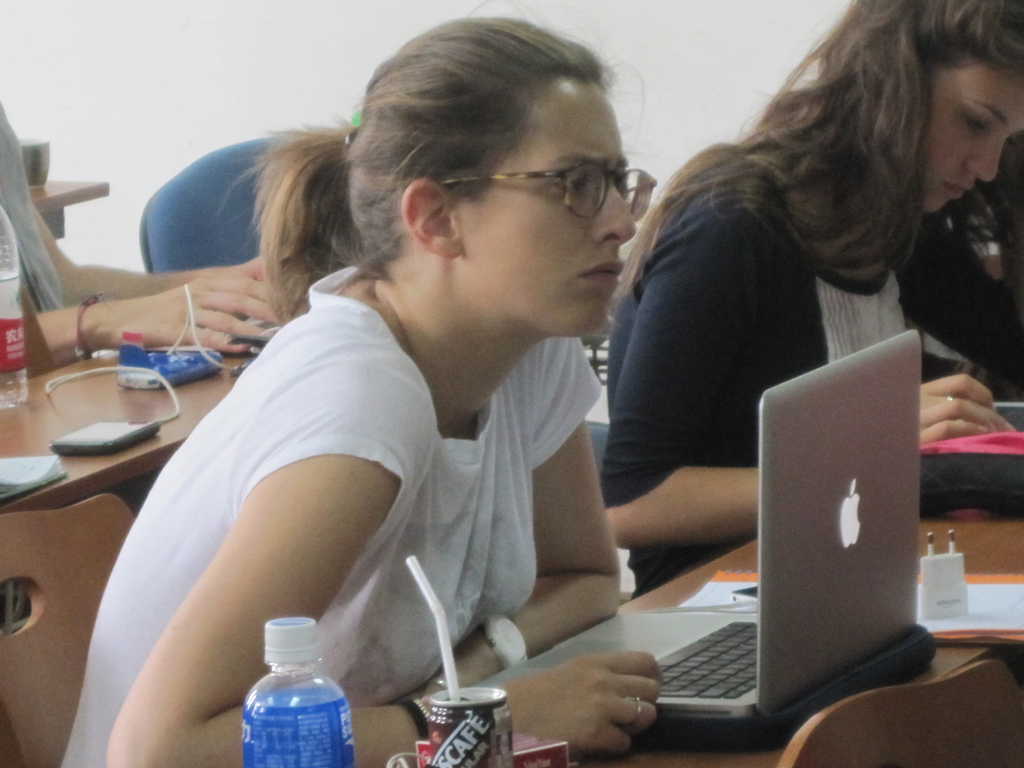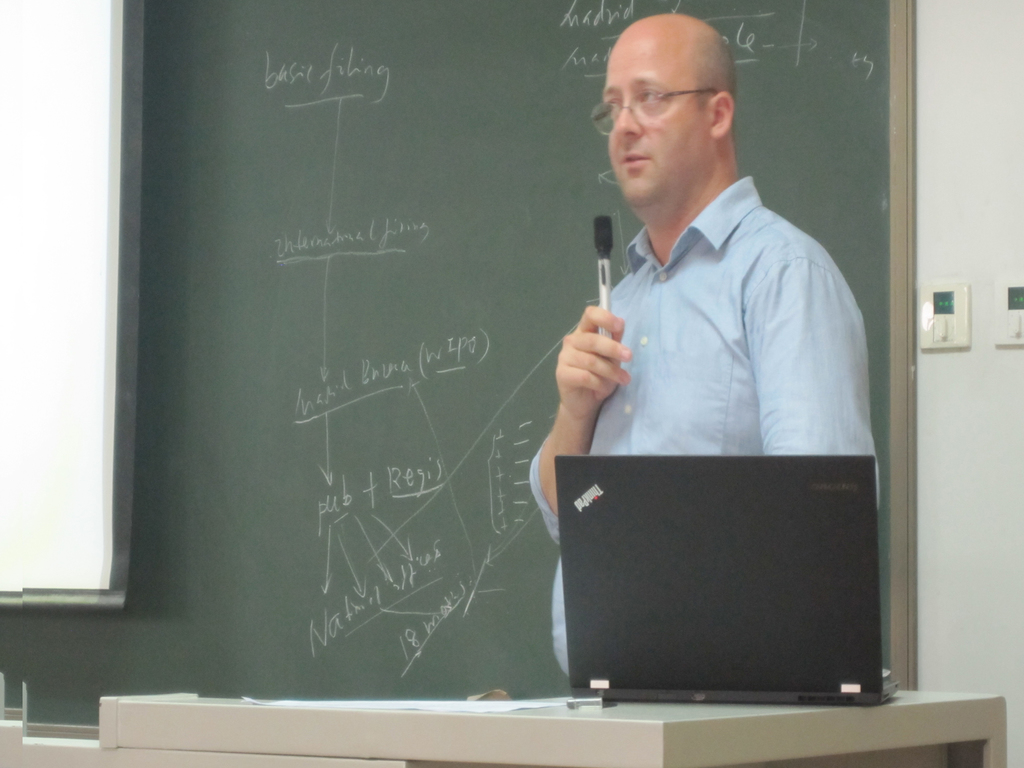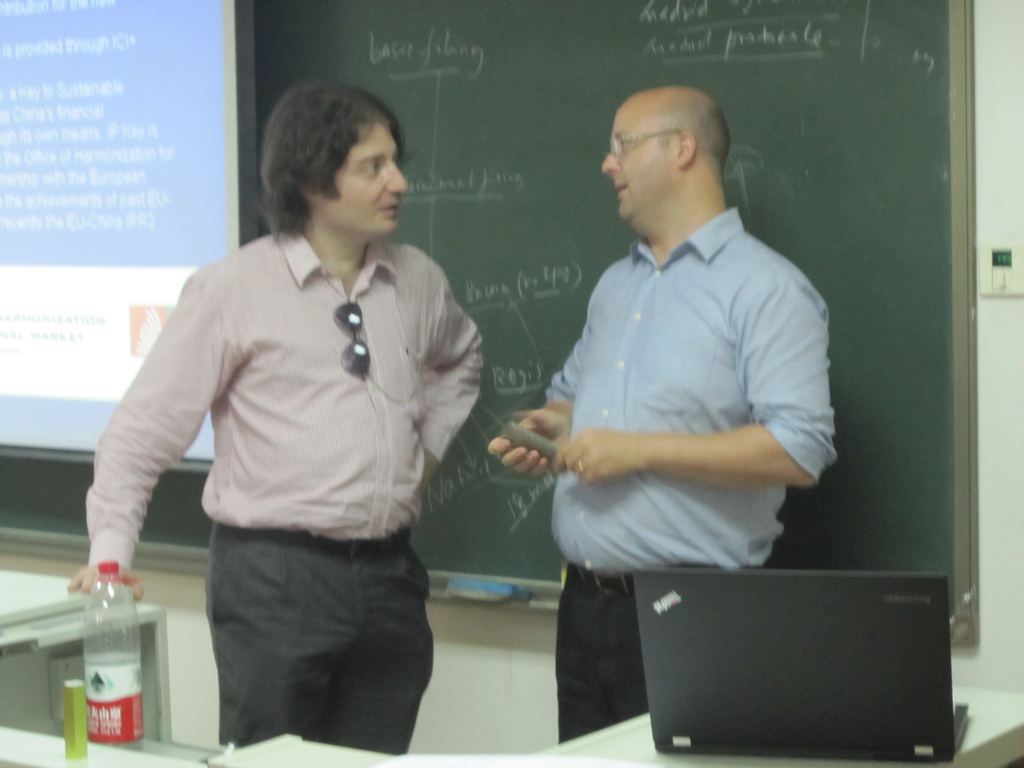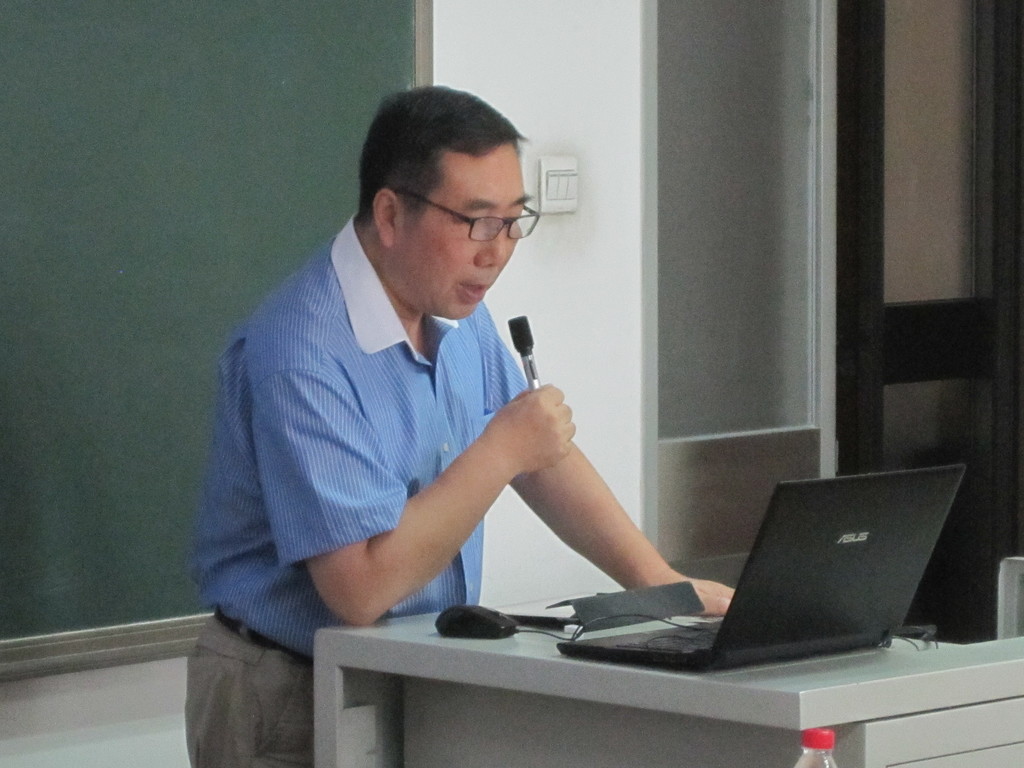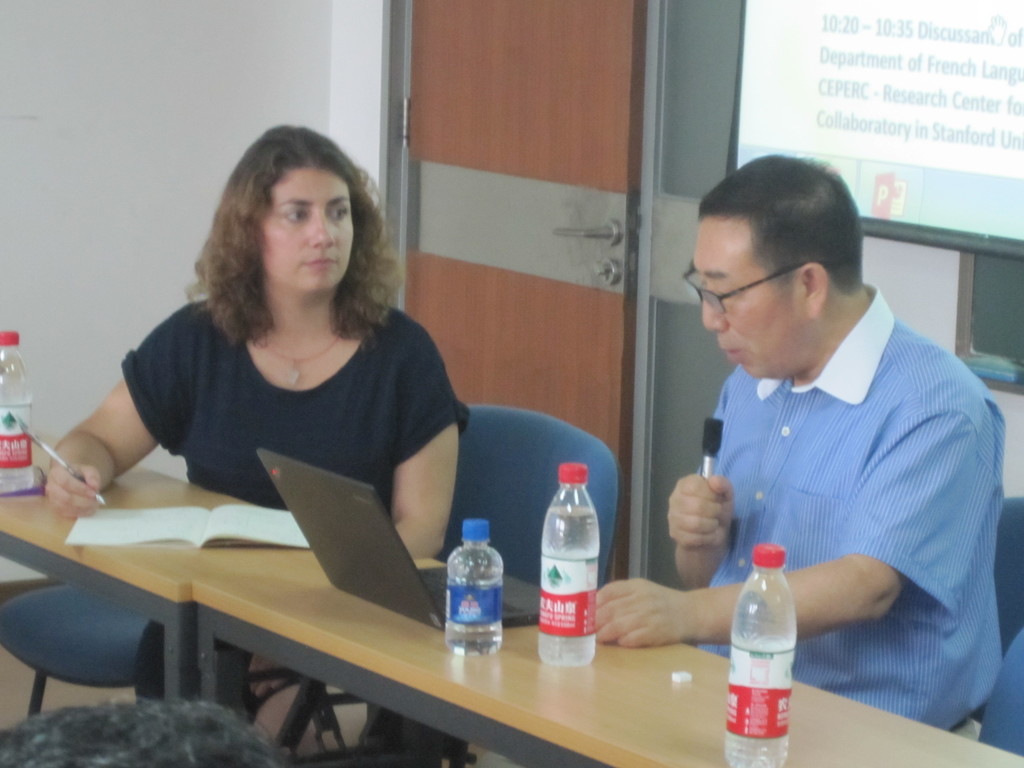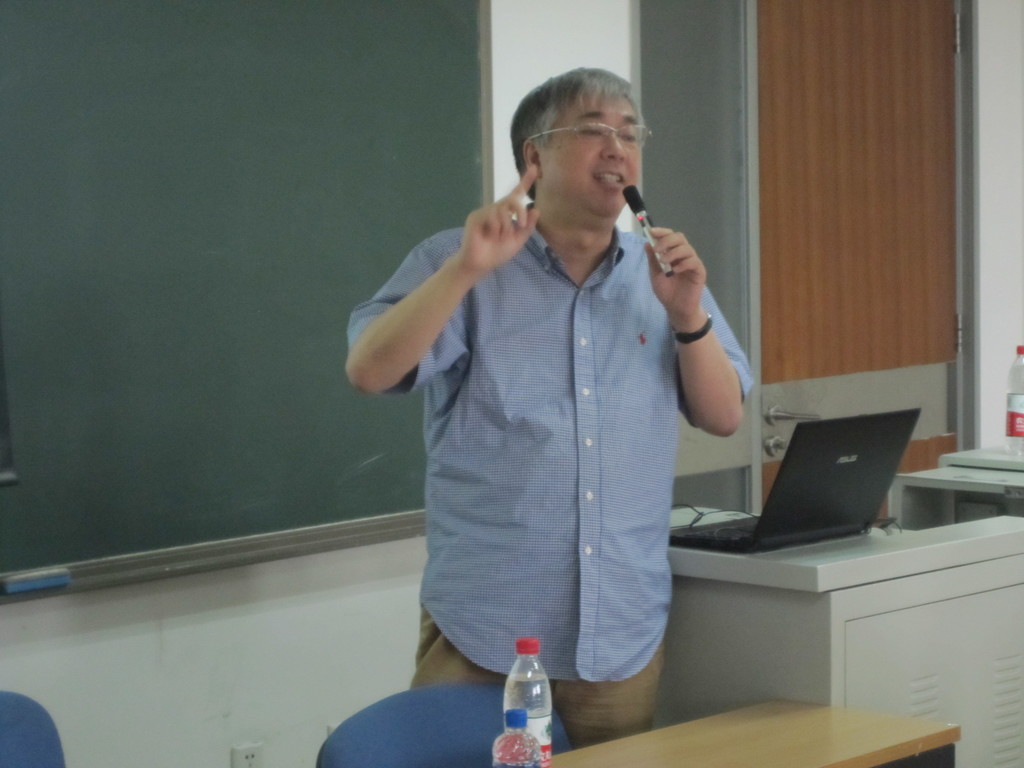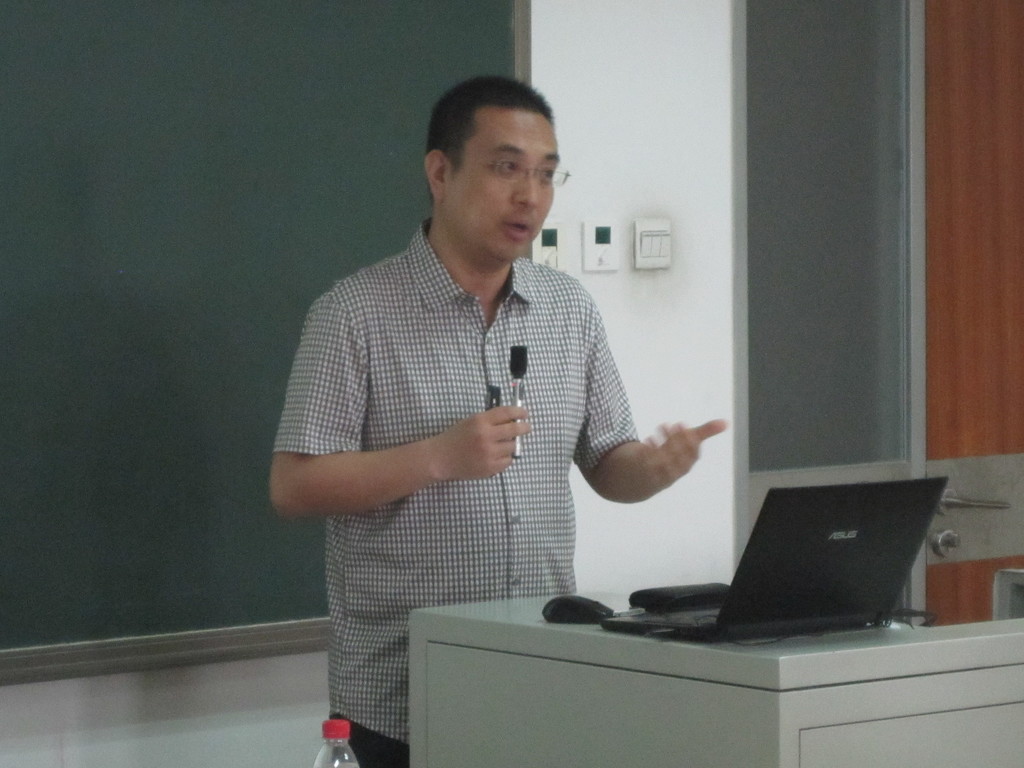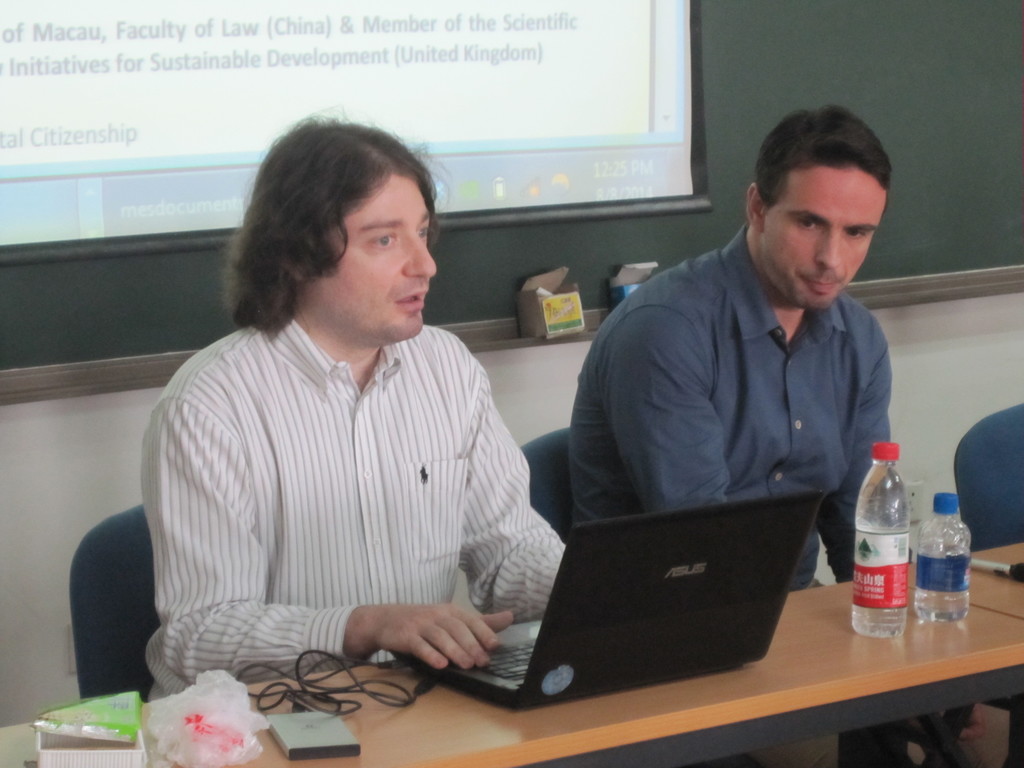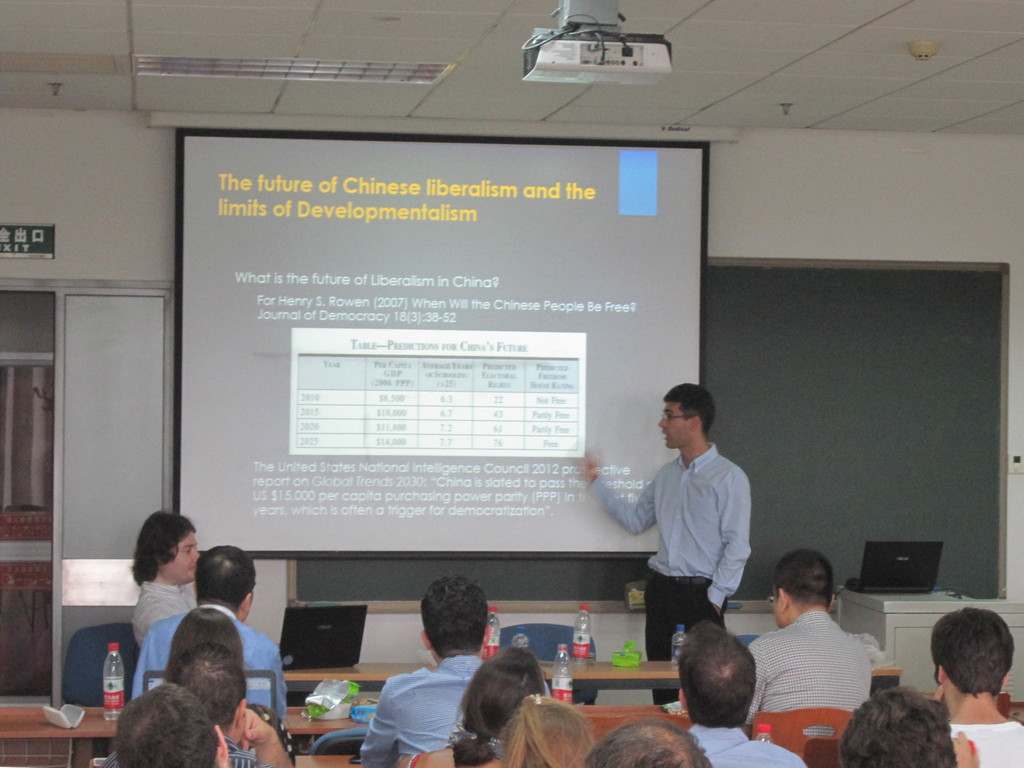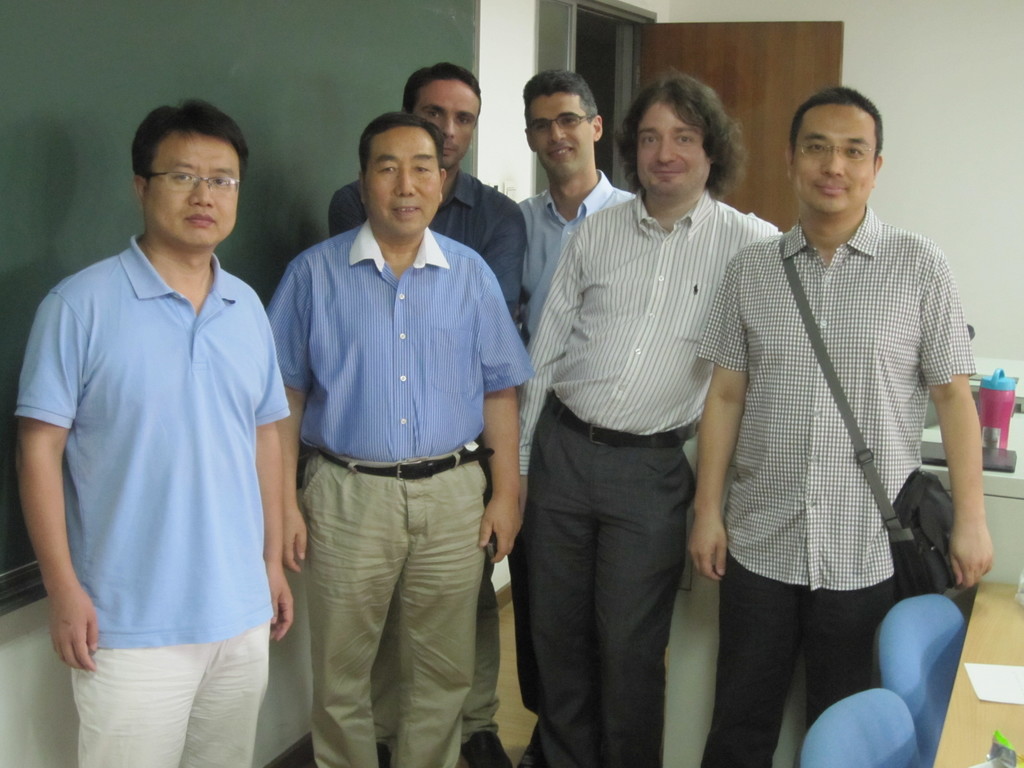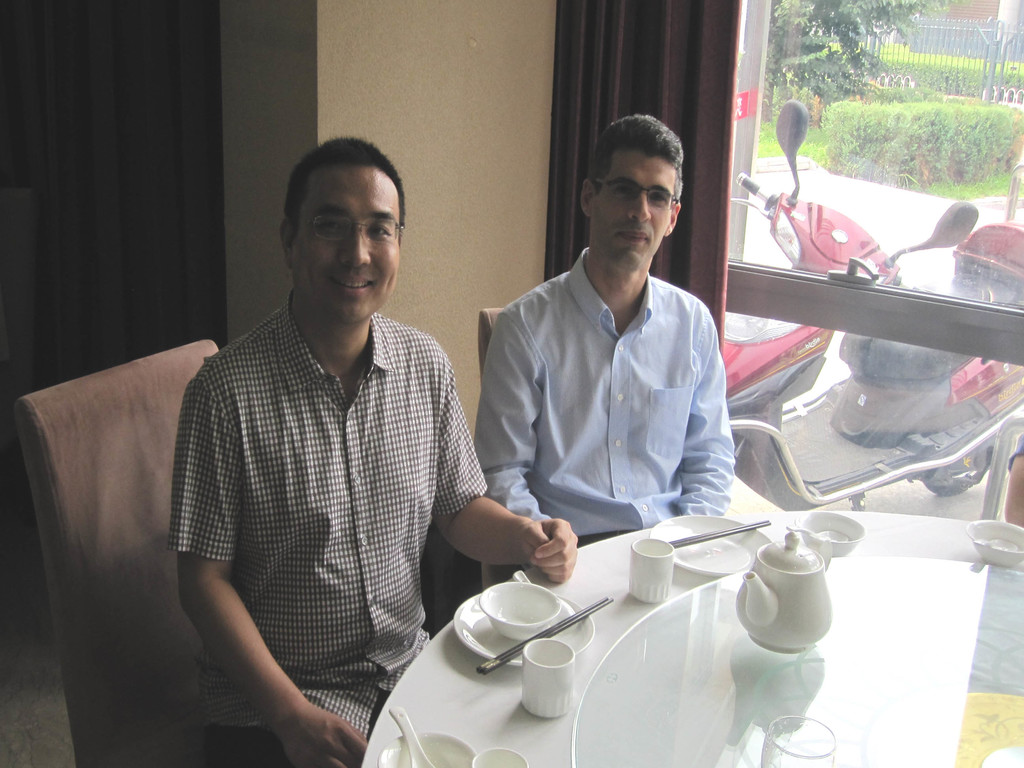
Referente Scientifico presso l’Istituto Universitario di Studi Europei (IUSE) :
| Work package title | Legal Aspects of Liberalism |
| Work package n°4 | Start month: 4 | End month: 44 | |
| Beneficiary/ Partner organization short name | UNIPMN & IUSE (leader), PKU, THU |
| Objectives |
|
| Description of the Work | Task 4.1 Rule of Law and Rule by Law in China and Europe: the research aims to assess the differences in the perception of law in China and Europe. Through a comparative study of the history of law, the cultural implications of the Confucian and Aristotelian traditions for the current elaboration of law will be addressed. The consequences of such conceptual differences will be assessed regarding the problem of the definition of the Rule of Law in international organizations. As stated by the World Bank: “Policymakers need to be clear about they mean by the rule of law because answers to many of the questions they are interested in – whether ‘rule of law’ facilitates economic development and whether democracy is a necessary precondition for rule of law, to cite just two examples – depend crucially on what definition of the rule of law is being used.” T.4.2 China’s integration to the WTO: liberalization of economy and good governance: the research aims to define the opportunities and challenges of China’s accession to the WTO. While China’s accession to the WTO is a condition for WTO rules universalization, it could also change the rules and role of WTO itself. Integrating a market with strong structural, behavioral and cultural constraints such China raised numerous questions. The challenges of the real implementation of WTO provisions throughout the territory of the People’s Republic of China (PRC) must be assessed to evaluate China’s WTO compliance and China’s TRIPs (Trade-Related Aspects of Intellectual Property Rights) compliance. T.4.3. The Good Governance perspective will be also part of our analysis. The good governance could be a term of reference to rebalance the excessive risks of liberalization of the economy. It can gain even more importance and be seen under a new light in such a time of economical crisis. The concept of good governance is part of the broader meaning of non-trade concerns (such as sustainable development, cultural rights, labour rights, public health, social welfare, national security, food safety, access to knowledge, consumer interests and animal welfare). Good Governance in particular is important when we refer to the general stability of the markets, to good faith and other key principles which are at the roots to build up a fair market in favour of both the governments and the citizens. Our analysis will focus on how to integrate the good governance concepts in the context of the global governance and law with a special focus on the Chinese role in this context after the accession to the WTO, the good governance in trade defence measures (dumping, compensatory and countervailing measures), the governance of markets and the global competition law with special focus on the antimonopoly law in China, the legal and economical analysis of dumping and anti-dumping under the financial crisis and the reforms of the Chinese financial law and the role of banks in the financial crisis. |
| Deliverables | D. 4.1 Collective workshop on China’s integration to WTO in the perspective of international law and its challenges for European Union support to Intellectual Property, NTCs and Good Governance D. 4.2 Individual papers submitted in international journals D. 4.3 One collective book on Liberalism between East and West |
Dissemination Activities: Conferences, Workshops, Guest Speakers
- Workshop on “How Globalization and Liberalism are Changing the World?” held at Charles University in Prague, Faculty of Social Sciences, Institute of Political Studies, 16th January 2013. Workshop/Lecture Series coordinated by University Institute of European Studies (IUSE) in Turin in the Framework of European Union Research Executive Agency IRSES Project “Liberalism in Between Europe and China” (LIBEAC) [ Allegato 1 ]
- Paolo Farah (Istituto Universitario di Studi Europei – IUSE), “Desirability of Commodification of Intangible Cultural Heritage: The Unsatisfying Role of IPRs”, Paper presented at the Conference “Art and Heritage Disputes”, Maastricht University Faculty of Law, The Netherlands, 24-25 March 2013 – Work-package 2 & 4
- Workshop on “Political, Philosophical and Legal Aspects of Liberalism in a Comparative Perspective”, Work-package 2 & 4, Beijing, China, 22nd July 2013
[ Allegato 1 ] [ Allegato 2 ] - Paolo Farah (Istituto Universitario di Studi Europei – IUSE), La globalisation de l’économie, les marchés financiers et les besoins humains fondamentaux (The Globalisation of the Economy, the Financial Markets and the Fundamental Human Needs), Paper presented (in French) at the Conference “Les Besoins Humains Fondamentaux, l’Ethique et le Droit des Affaires” (The Fundamental Human Needs, the Ethics and the Business Law), organized in collaboration among Bocconi University in Milan, Université Senghor de la Francophonie, French Embassy in Italy, French Institute, Bocconi University, Milan, Italy, 26th May 2014 – Work-package 2 & 4 allegato 1 – allegato 2
- Paolo Farah (Istituto Universitario di Studi Europei – IUSE), Eurasian Economic Community: A Regional Integration Process in Compliance with International Standards and WTO Rules or an USSR-Type Union? A Case Study on Belarus WTO Accession and the TRIPs Agreement in comparison with the Best International Legal Harmonization Practice, Paper presented at the European Society of International Law (ESIL) International Legal Theory Interest Group’s Conference “The Approaches of Liberal and Illiberal Governments to International Law. A Conference Marking 25 Years from the Collapse of Communist Regimes in Central and Eastern Europe”, University of Tartu, Estonia, 12-13 June 2014 – Work-package 2 & 4 allegato 1
- Key Note Speech of Professor Daniel Bell (Professor at Department of Philosophy and Director of the Center for International and Comparative Political Theory at Tsinghua University) on “Political Meritocracy: China and the Limits of Democracy” divided in three sessions: Part I: “On the Selection of Good Leaders in a Political Meritocracy”, Part II: “What’s Wrong with Political Meritocracy”, Part III: “Models of Democratic Meritocracy” held at Peking University, School of Government, Center for European Studies on 21st July 2014. Introduction and comments from Prof. Paolo Farah (University Institute of European Studies, IUSE, Turin, Italy). Work-package 2 & 4. The event is organized by gLAWcal – Global Law Initiatives for Sustainable Development (United Kingdom) in collaboration with the following beneficiaries and partner institutions of the European Union Research Executive Agency IRSES Project “Liberalism in Between Europe And China” (LIBEAC) coordinated by Aix-Marseille University (CEPERC): University Institute of European Studies (IUSE) in Turin, Italy and the University of Piemonte Orientale, Novara, Italy Peking University, School of Government, Center for European Studies (China), Tsinghua University, Department of Philosophy (China). Workpackages 2 and 4.
[ Allegato 1 ] - Paolo Farah (Istituto Universitario di Studi Europei – IUSE), “Intellectual Property Rights, Human Rights and Intangible Cultural Heritage”, held at Peking University, School of Government, Center for European Studies on 28th July 2014. The event is organized by gLAWcal – Global Law Initiatives for Sustainable Development (United Kingdom) in collaboration with the following beneficiaries and partner institutions of the European Union Research Executive Agency IRSES Project “Liberalism in Between Europe And China” (LIBEAC) coordinated by Aix-Marseille University (CEPERC): University Institute of European Studies (IUSE) in Turin, Italy and the University of Piemonte Orientale, Novara, Italy Peking University, School of Government, Center for European Studies (China). Work-package 2 & 4 – [ Allegato 1 ]
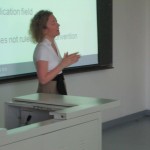
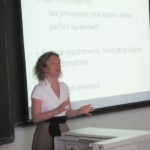 Sara Marchetta, Vice-President European Chamber of Commerce in China and Partner Chiomenti Law Firm, Beijing Branch, “Contract Law of the People’s Republic of China” held at Peking University, School of Government, Center for European Studies on 25th July 2014. Introduction and comments from Prof. Paolo Davide Farah (University Institute of European Studies, IUSE, Turin, Italy). The event is organized by gLAWcal – Global Law Initiatives for Sustainable Development (United Kingdom) in collaboration with the following beneficiaries and partner institutions of the European Union Research Executive Agency IRSES Project “Liberalism in Between Europe And China” (LIBEAC) coordinated by Aix-Marseille University (CEPERC): University Institute of European Studies (IUSE) in Turin, Italy and the University of Piemonte Orientale, Novara, Italy Peking University, School of Government, Center for European Studies (China). Work-package 2 and 4. [ Allegato 1 ]
Sara Marchetta, Vice-President European Chamber of Commerce in China and Partner Chiomenti Law Firm, Beijing Branch, “Contract Law of the People’s Republic of China” held at Peking University, School of Government, Center for European Studies on 25th July 2014. Introduction and comments from Prof. Paolo Davide Farah (University Institute of European Studies, IUSE, Turin, Italy). The event is organized by gLAWcal – Global Law Initiatives for Sustainable Development (United Kingdom) in collaboration with the following beneficiaries and partner institutions of the European Union Research Executive Agency IRSES Project “Liberalism in Between Europe And China” (LIBEAC) coordinated by Aix-Marseille University (CEPERC): University Institute of European Studies (IUSE) in Turin, Italy and the University of Piemonte Orientale, Novara, Italy Peking University, School of Government, Center for European Studies (China). Work-package 2 and 4. [ Allegato 1 ]- Benoit Misonne, Team Leader, Intellectual Property: A Key to Sustainable Competitiveness (IP Key – An EU project implemented and co-financed by OHIM in partnership with the EPO), “Protection of Copyrights in the Digital Era” held at held at Peking University, School of Government, Center for European Studies on 29th July 2014. Introduction and comments from Prof. Paolo Davide Farah (University Institute of European Studies, IUSE, Turin, Italy). The event is organized by gLAWcal – Global Law Initiatives for Sustainable Development (United Kingdom) in collaboration with the following beneficiaries and partner institutions of the European Union Research Executive Agency IRSES Project “Liberalism in Between Europe And China” (LIBEAC) coordinated by Aix-Marseille University (CEPERC): University Institute of European Studies (IUSE) in Turin, Italy and the University of Piemonte Orientale, Novara, Italy Peking University, School of Government, Center for European Studies (China). Work-package 2 & 4 [ Allegato 1 ]
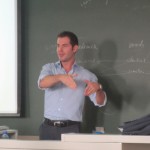
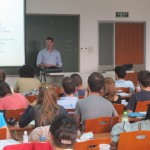 Sergio Scanu, Senior Associate – Chiomenti Law Firm, Beijing Branch, “E-Commerce, Social Networks and Applications: Smart Technologies and the Protection of Intellectual Property Rights”, held at Peking University, School of Government, Center for European Studies on 30th July 2014. Introduction and comments from Prof. Paolo Davide Farah (University Institute of European Studies, IUSE, Turin, Italy). The event is organized by gLAWcal – Global Law Initiatives for Sustainable Development (United Kingdom) in collaboration with the following beneficiaries and partner institutions of the European Union Research Executive Agency IRSES Project “Liberalism in Between Europe And China” (LIBEAC) coordinated by Aix-Marseille University (CEPERC): University Institute of European Studies (IUSE) in Turin, Italy and the University of Piemonte Orientale, Novara, Italy Peking University, School of Government, Center for European Studies (China). Work-package 2 & 4 [ Allegato 1 ]
Sergio Scanu, Senior Associate – Chiomenti Law Firm, Beijing Branch, “E-Commerce, Social Networks and Applications: Smart Technologies and the Protection of Intellectual Property Rights”, held at Peking University, School of Government, Center for European Studies on 30th July 2014. Introduction and comments from Prof. Paolo Davide Farah (University Institute of European Studies, IUSE, Turin, Italy). The event is organized by gLAWcal – Global Law Initiatives for Sustainable Development (United Kingdom) in collaboration with the following beneficiaries and partner institutions of the European Union Research Executive Agency IRSES Project “Liberalism in Between Europe And China” (LIBEAC) coordinated by Aix-Marseille University (CEPERC): University Institute of European Studies (IUSE) in Turin, Italy and the University of Piemonte Orientale, Novara, Italy Peking University, School of Government, Center for European Studies (China). Work-package 2 & 4 [ Allegato 1 ]
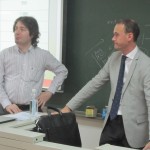 Lorenzo Riccardi, Associate at RSA, Leading Tax and Corporate Advisory Firm assisting Companies, Multinational Groups and Institutions in Asian Region and Far East, “Taxation in China”, held at Peking University, School of Government, Center for European Studies on 31st July 2014. Introduction and comments from Prof. Paolo Davide Farah (University Institute of European Studies, IUSE, Turin, Italy). The event is organized by gLAWcal – Global Law Initiatives for Sustainable Development (United Kingdom) in collaboration with the following beneficiaries and partner institutions of the European Union Research Executive Agency IRSES Project “Liberalism in Between Europe And China” (LIBEAC) coordinated by Aix-Marseille University (CEPERC): University Institute of European Studies (IUSE) in Turin, Italy and the University of Piemonte Orientale, Novara, Italy Peking University, School of Government, Center for European Studies (China). Work-package 2 & 4 [ Allegato 1 ]
Lorenzo Riccardi, Associate at RSA, Leading Tax and Corporate Advisory Firm assisting Companies, Multinational Groups and Institutions in Asian Region and Far East, “Taxation in China”, held at Peking University, School of Government, Center for European Studies on 31st July 2014. Introduction and comments from Prof. Paolo Davide Farah (University Institute of European Studies, IUSE, Turin, Italy). The event is organized by gLAWcal – Global Law Initiatives for Sustainable Development (United Kingdom) in collaboration with the following beneficiaries and partner institutions of the European Union Research Executive Agency IRSES Project “Liberalism in Between Europe And China” (LIBEAC) coordinated by Aix-Marseille University (CEPERC): University Institute of European Studies (IUSE) in Turin, Italy and the University of Piemonte Orientale, Novara, Italy Peking University, School of Government, Center for European Studies (China). Work-package 2 & 4 [ Allegato 1 ]
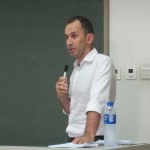 Davide Follador, Expert, Intellectual Property: A Key to Sustainable Competitiveness (IP Key – An EU project implemented and co-financed by OHIM in partnership with the EPO) gave three one-hour lecture on the following relevant topics for the Legal Work-package “Enforcement of Well Known Trademarks in China”, “Recent changes in Chinese Trademark Law”, “Protection of IP for Creative Industry in China”. This event was held at Peking University, School of Government, Center for European Studies on 1st August 2014. Introduction and comments from Prof. Paolo Davide Farah (University Institute of European Studies, IUSE, Turin, Italy). The event is organized by gLAWcal – Global Law Initiatives for Sustainable Development (United Kingdom) in collaboration with the following beneficiaries and partner institutions of the European Union Research Executive Agency IRSES Project “Liberalism in Between Europe And China” (LIBEAC) coordinated by Aix-Marseille University (CEPERC): University Institute of European Studies (IUSE) in Turin, Italy and the University of Piemonte Orientale, Novara, Italy Peking University, School of Government, Center for European Studies (China). Work-package 2 & 4 [ Allegato 1 ]
Davide Follador, Expert, Intellectual Property: A Key to Sustainable Competitiveness (IP Key – An EU project implemented and co-financed by OHIM in partnership with the EPO) gave three one-hour lecture on the following relevant topics for the Legal Work-package “Enforcement of Well Known Trademarks in China”, “Recent changes in Chinese Trademark Law”, “Protection of IP for Creative Industry in China”. This event was held at Peking University, School of Government, Center for European Studies on 1st August 2014. Introduction and comments from Prof. Paolo Davide Farah (University Institute of European Studies, IUSE, Turin, Italy). The event is organized by gLAWcal – Global Law Initiatives for Sustainable Development (United Kingdom) in collaboration with the following beneficiaries and partner institutions of the European Union Research Executive Agency IRSES Project “Liberalism in Between Europe And China” (LIBEAC) coordinated by Aix-Marseille University (CEPERC): University Institute of European Studies (IUSE) in Turin, Italy and the University of Piemonte Orientale, Novara, Italy Peking University, School of Government, Center for European Studies (China). Work-package 2 & 4 [ Allegato 1 ]
- Workshop on “Social, Cultural and Legal Perspective on Chinese –Political And Economic – Liberalism Today”, held at Peking University, School of Government on the 8th August 2014, 8:30 – 13:15. The event is organized by gLAWcal – Global Law Initiatives for Sustainable Development (United Kingdom) in collaboration with the following beneficiaries and partner institutions of the European Union Research Executive Agency IRSES Project “Liberalism in Between Europe And China” (LIBEAC): Aix-Marseille University, CEPERC (France), University Institute of European Studies (IUSE) in Turin, Italy and the University of Piemonte Orientale, Novara, Italy Peking University, School of Government, Center for European Studies (China), Tsinghua University, Department of Philosophy (China), Tsinghua University, School of Public Policy and Management (China), Workpackages 2 and 4 [ Allegato 1 ]
- Paolo Davide Farah, “Advantages and Disadvantages of Globalization and Liberalism toward Social, Economic, Environmental and Cultural Rights”, Paper presented at the Workshop on “Social, Cultural and Legal Perspective on Chinese – Political and Economic – Liberalism Today”, organized by gLAWcal – Global Law Initiatives for Sustainable Development (United Kingdom), University Institute of European Studies (IUSE) in Turin (Italy), University of Piemonte Orientale, Novara (Italy), Peking University, School of Government, Center for European Studies (China), Tsinghua University, Department of Philosophy (China), Tsinghua University, School of Public Policy and Management (China), Aix-Marseille University, CEPERC (France), held at Peking University, School of Government on the 8th August 2014, 8:30 – 13:15. Workpackages 2 and 4
News and short articles
News and Short Articles within the LIBEAC project (July-Dec 2014)
News and Short Articles within the LIBEAC project (March-July 2014)
Publications, Working Papers and Newsletters
Publications
- Paolo Farah (Istituto Universitario di Studi Europei – IUSE), Riccardo Tremolada (Università del Piemonte Orientale – UNIPMN), Desirability of Commodification of Intangible Cultural Heritage: The Unsatisfying Role of IPRs, in Transnational Dispute Management, Special Issues “Art and Heritage Disputes”, Issues 2, 2014, ISSN 1875-4120 – Work-package 2 & 4
- Paolo Farah (Istituto Universitario di Studi Europei – IUSE), Riccardo Tremolada (Università del Piemonte Orientale – UNIPMN), Diritti di proprietà intellettuale, diritti umani e patrimonio culturale immateriale, in Rivista di Diritto Industriale (Journal of Intellectual Property Law), Issue 2, Part I, 2014, ISSN: 0035-614X, Giuffre, pp. 21-47.- Work-package 2 & 4
- Paolo Davide Farah, Elena Cima (editors), CHINA’S INFLUENCE ON NON-TRADE CONCERNS IN INTERNATIONAL ECONOMIC LAW, Sections on Climate Change, Sustainable Development and the Protection of Environment, Social, Economic and Cultural Rights, Labour Rights, Public Health, Food and Product Safety, Consumer Protection, Global Law and Sustainable Development Book Series, Routledge Publishing (London/New-York), ISBN 978-1-4094-4848-8, October 2016, pp. 1 – 584
To purchase the book: https://www.routledge.com/Chinas-Influence-on-Non-Trade-Concerns-in-International-Economic-Law/Farah-Cima/p/book/9781409448488
Cover, Table of Contents, Forewords, Introduction and Acknowledgements can be downloaded at the following website: https://papers.ssrn.com/sol3/papers.cfm?abstract_id=2876883
Working Papers
- Andrea Lacroce (Italy – Istituto Universitario di Studi Europei – IUSE), Globalization, Liberalism and Intellectual Property Rights, IUSE Working Paper (Work-in-progress) – Work-package 2 & 4
- Ivana Gaskova (Czech Republic – Istituto Universitario di Studi Europei – IUSE), Recent Change of Health Insurance and Social Security Policy in China toward more Protection for the Chinese Citizens, IUSE Working Paper (Work-in-progress) – Work-package 2 & 4
- Karen Manukyan (Armenia – Istituto Universitario di Studi Europei – IUSE), “Intellectual Property as a Tool to Accelerate Economic Growth”, IUSE Working Paper (Work-in-progress) – Work-package 2 & 4
- Matus Jakub (Slovak – Istituto Universitario di Studi Europei – IUSE), “Influence of Politics on Lawmaking Procedure in Democratic Society”, IUSE Working Paper (Work-in-progress) – Work-package 2 & 4
